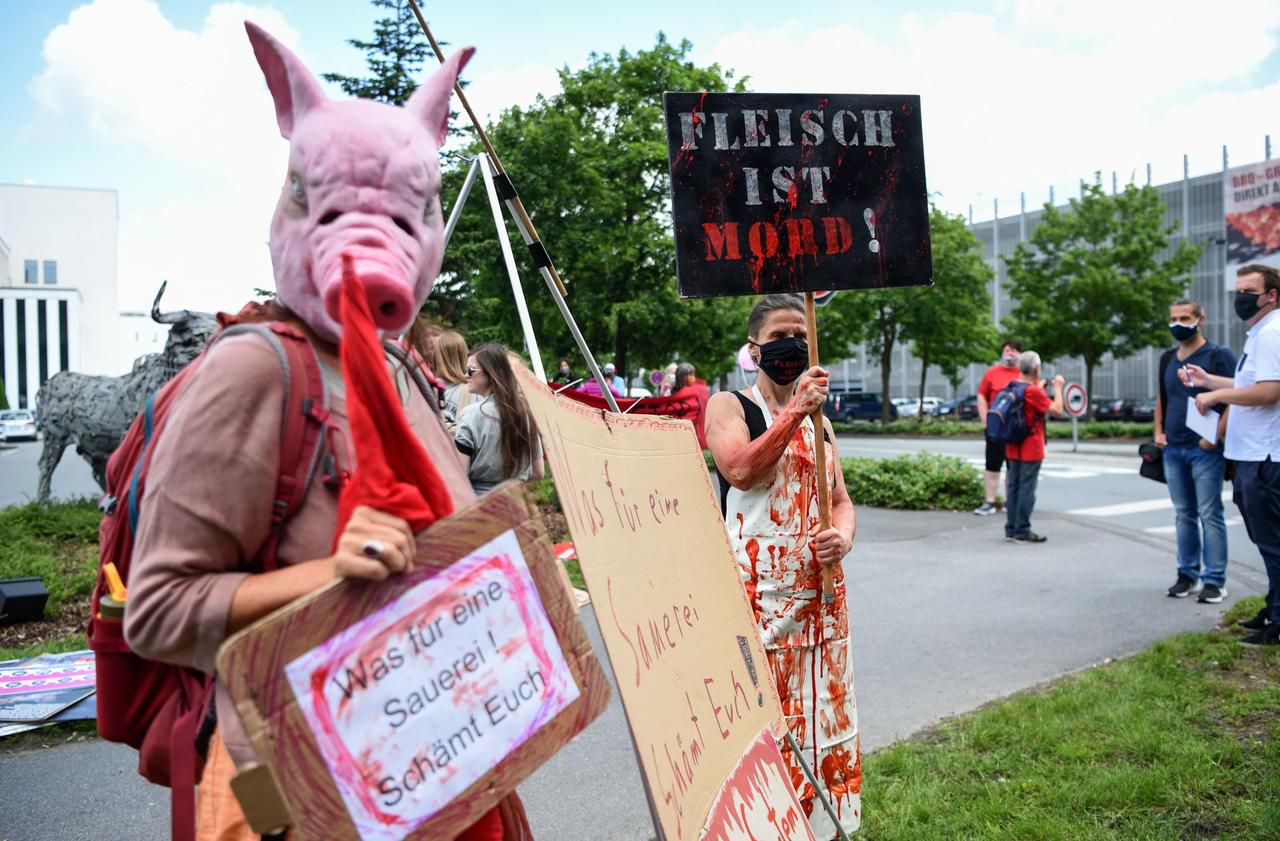The name of the German slaughterhouse in Rheda-Wiedenbrück, in North Rhine-Westphalia, is added to the list of establishments where meat transits and which have become clusters of the epidemic. In this company, this Saturday, nearly 1000 contaminations to Covid-19 were identified, and certain test results are still awaited.
The first cases were discovered Wednesday, with 400 infections in this slaughterhouse, owned by one of the largest meat producers in the country, and Friday, the number of contaminations was already more than 800 cases. As a result, local health authorities have ordered quarantine of 6,500 workers and their families, local media reports.
According to the news site DW, the authorities deplore the fact that they had difficulty in contacting all the employees. "As of Friday morning, the addresses of about 30% of the workers were still inaccessible," he said, questioning management. A massive screening operation took place again this Saturday.
Towards "a wider locking of the region"?
"We are witnessing an epidemic on a scale that we have never seen before," deplored Armin Laschet, the leader of this region which is the size of the Netherlands, in words reported by Reuters. "We will try to contain the epidemic locally, but if we do not manage it, we will need a wider locking of the region", he warned, while the country has been on for several weeks the way to a resumption of normal activity.
Some of Armin Laschet's remarks have also sparked an intense controversy that hasn't died out since Wednesday. This conservative German regional leader, candidate for the succession of Angela Merkel, accused Romanian and Bulgarian workers of being at the origin of this new center of infection. In this slaughterhouse, a majority of employees would come from these two countries and live near the site, in cramped accommodation, according to DW.
Controversy over the origin of workers
German slaughterhouses, which have been several sources of contamination, generally employ many workers from eastern or central Europe.
Supporter for weeks of a relaxation of the rules of containment to restart the economy, Armin Laschet, - also candidate for the presidency of the conservative party CDU in December and, in case of victory, in the chancellery in 2021-, had estimated that the role of the Germans in this contamination was unclear, and "means nothing at all because Romanians and Bulgarians entered the country and that is where the virus comes from". Social Democratic Minister for Foreign Affairs Heiko Maas asked Armin Laschet for an apology for his "very dangerous" remarks during a visit to Sofia on Thursday.
Newsletter - The essentials of the news
Every morning, the news seen by Le ParisienI'm registering
Your email address is collected by Le Parisien to allow you to receive our news and commercial offers. Find out more
Her Bulgarian counterpart, Ekaterina Zaharieva, also castigated statements "very unbalanced and unacceptable". "It is normal for people to be afraid, but it is not normal for this fear to be stirred up by politicians," she added, stressing that "Bulgarians contribute a lot to the economy of Rhineland. North Westphalia ". Armin Laschet finally returned to his words. "It is forbidden to blame people of any origin whatsoever for the virus," he said, even promising "substantial improvements" in the working conditions of these foreign workers.

